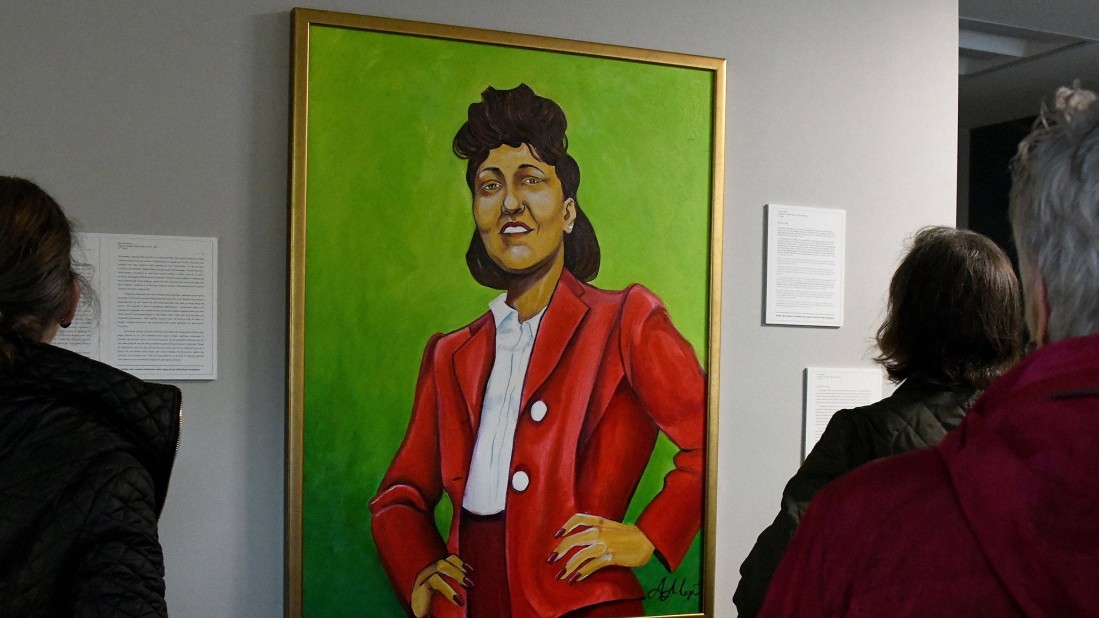Henrietta Lacks died in 1951 at the age of 31, but her cells are still alive today. Shortly before her death, the mother of five children was admitted to Johns Hopkins Hospital in Baltimore with cervical cancer. A doctor took a tissue sample from the African-American woman without her consent and used it to create an immortal cell line that is still used today in laboratories around the world for medical research.
Today, the history of the so-called HeLa cells is an example of racism and injustice in the history of medicine. What the doctor did was covered by the law at the time. For decades, the surviving relatives of the deceased not only fought for recognition of the injustice that was done at the time, but also in court for compensation from the company Thermo Fisher since 2021, which turned the HeLa cells into a commercial product and thus earned billions. On Tuesday, the lawyers for the survivors of Lacks said they had reached an out-of-court settlement with the company. It was agreed not to disclose the details. But both sides were satisfied with the agreement in a press conference.
HeLa cells have contributed to the development of vaccines
In 2010, the story of Henrietta Lacks and her cells became widely known. In the book The immortal Life of Henrietta Lacks, which was later made into a film, the US journalist Rebecca Skloot not only traces the history of immortal cells, but also describes the consequences for biomedical research, the family and humanity as a whole. Because HeLa cells have contributed, among other things, to the development of vaccines that have averted a lot of suffering to date.
Open detailed view
Attorney Ben Crump, center, with Henrietta Lacks’ family after the settlement.
(Photo: IMAGO/Amy Davis/ZUMA Wire)
For example, HeLa cells were instrumental in the development of the first polio vaccine. The vaccine had to be tested on human cells before volunteers got it. The immortal cancer cells were the perfect candidates for this. Genetically modified HeLa cells serve as test objects for the development of antiviral drugs, for example against the immune deficiency virus HIV.
The cells were also involved in at least one Nobel Prize. In the 1980s, German virologist Harald zur Hausen discovered viruses in the cells he was working with in the lab, identified them as human papillomavirus (HPV), and realized they cause the type of cervical cancer that Henrietta Lacks once had had died. There are now vaccines against these viruses, and zur Hausen, who died in May, was awarded the Nobel Prize in Medicine in 2008 for his work.
Cells can also be used to research aging – because they stay young forever
And finally, Henrietta Lacks’ cells help to understand how cells age. After all, they don’t do it themselves, which is why they are good objects of comparison and suitable tools to study aging at the biomolecular level. Only in the early 1960s was it possible to create a second immortal cell line from human tissue – from the lung tissue of an aborted fetus. The cells are called WI-38 and are also still used today in research.
Open detailed view
An illustration of the famous HeLa cells.
(Foto: IMAGO/Science Photo Library)
When the complete genome of the HeLa cells was deciphered for the first time in 2013, there was a scandal. The researchers published the genetic data without speaking to the offspring of the involuntary cell donor. In the process, genetic information about the offspring became known; for example, there could be indications of hereditary diseases in the sequence data. As a result, the genetic data was initially withdrawn, consent was obtained, and Lacks’ heirs are now watching what that information is used for.
In 2021, 70 years after her death, the World Health Organization honored Henrietta Lacks in Geneva. WHO chief Tedros Adhanom Ghebreyesus said at the ceremony that she had been exploited. He drew a link to the ongoing medical disadvantage of the world‘s poor. The HPV vaccination is easily available in rich countries, but is only offered in less than a quarter of the poorest countries.
Lacks would have been 103 years old on Tuesday, the day of the settlement between the Lacks family and Thermo Fisher. One of the lawyers said he couldn’t think of a better gift than giving back a little respect and dignity to the family and especially to Henrietta Lacks.
